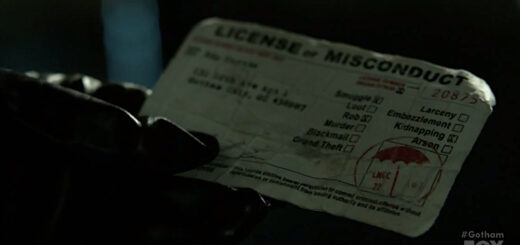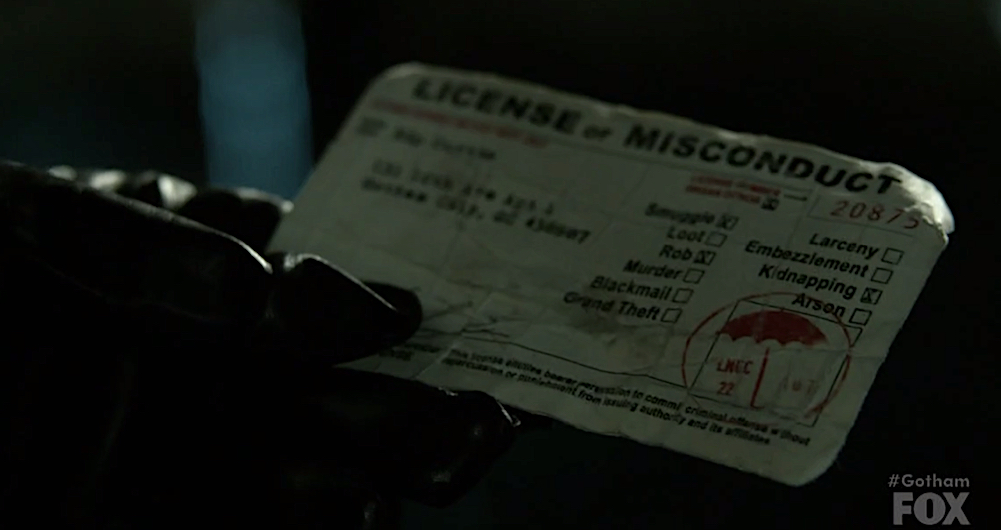The Law Is A Ass # 423: Cyborg Clunks The Parole Evidence Rule
 I have a mutant power. (One mutant power; don’t believe any lies Tony Isabella tells about a different power and the silly codename Shattertoy.) I have one power; I get things right for the wrong reason.
I have a mutant power. (One mutant power; don’t believe any lies Tony Isabella tells about a different power and the silly codename Shattertoy.) I have one power; I get things right for the wrong reason.
And, it seems, my power is catching. Because in Cyborg vol. 2, number 1, the book’s eponymous hero showed the same power. (Sure, the guy’s a half-human/half-robot super hero with gadgets and gizmos aplenty, and you’ve got to go and give him my power, too?)
In the comic in question, Cyborg was stopping an armored car hijacking. The hijackers were speeding their wannabe tank through downtown Detroit with a full cadre of police cars in hot pursuit. That’s when Cyborg used his robotic strength to stop the armored car with a force so masterfully applied that it crumpled the car’s front end without even registering a sound effect in the panel. Now that’s skill! As part of his Spider-Man-approved catch-the-crooks banter, Cyborg explained that the hijackers were likely to hurt someone with their reckless driving and he couldn’t allow that.
Cyborg shook the armored car like he was in a low-budget Mariachi band that could only afford one maraca. The two criminals came tumbling out of the car and immediately started shooting AR-15s. Uh, Cyborg, if you’re really interested in not letting the bad guys hurt anyone, you might try disarming them before you dump them out of the nice car with nice armored sides that bullets can’t get through.
Cyborg used his on-board internet connection to scan the hijackers’ cell phones and learned one was a parolee named Dante Morris. So he continued his banter with, “Dante, Dante, Dante… You do realize that each one of these shots is a violation of your parole, don’t you? You’re probably looking at a year behind bars for each bullet.”
Then Cyborg disarmed and subdued the hijackers, which ended his involvement in the matter. And started mine. Cause now I get to explain that while Cyborg’s ultimate conclusion might have been correct, his reasoning was dead wrong. Er, considering how much lead was flying around, I guess we should be glad Cyborg wasn’t dead wrong. But he was wrong nonetheless.
Not about the part that hijacking an armored car would violate Dante’s parole. Cyborg was wrong in saying that each separate bullet that Dante and his co-conspirator fired was a separate parole violation that would add a year to Dante’s sentence. That’s not how parole violations work.
Parole is an early release from prison. When inmates are granted parole, they are released before serving their entire sentence. Parole comes with conditions attached. Some of these conditions vary, but the ones that are almost always imposed include: a stable place to live, steady employment, reporting to the parole officer, and not consorting with other criminals. Oh yeah, and the biggie; while you’re on parole, don’t break the law.
If a parolee violates parole, the parolee’s parole officer files a notice listing all of the reasons why the officer believes the parolee has violated parole. Then someone, either the parole authority or a judge, holds a hearing which will determine whether the parolee has violated parole. If the person presiding over the hearing rules that the parolee did violate parole, the parolee’s parole can be revoked and the parolee sent back to prison to serve the remainder the original sentence. If a parolee commits armed robbery, not to mention armored car robbery, I can pretty much guarantee the parolee will be going back to prison.
But parole violations don’t involve multiple sentences. Even if the parolee did several different things and each separate act constituted a different parole violation, each act does not add additional time to the parolee’s sentence. Parole violators serve out the remainder of the original sentence. They don’t get additional time for violating their parole.
Dante violated his parole by obtaining a firearm, hijacking an armored car, consorting with another criminal, participating in a high-speed chase with the police, and shooting at Cyborg and the police. Each act was a separate parole violation, but, despite what Cyborg said, each bullet will not add more years to Dante’s time in prison.
However, a parole violation does not end the story of Dante’s problems with the law. You see, by buying the guns, hijacking the armored car, participating in the high-speed chase, and shooting at the police and Cyborg, Dante wasn’t just violating his parole; he was also committing new crimes. Crimes for which he could – no, would – be put on trial. And after he was convicted of those crimes he would be sentenced to new prison terms for his new crimes.
Many jurisdictions have laws requiring that if a parolee violates parole by committing new crimes, not only will the parolee be required to finish the original sentence, but any sentence the parolee receives for the new crimes must be imposed consecutively to the parolee’s original sentence. In addition, if the judge was in a particularly “tough on crime” mood, the judge can order the sentence on each new count to be served consecutively.
If that happened to Dante, he would serve out the remainder of his original sentence, then start serving the sentences for his new crimes. And if the judge ran everything consecutively, Dante would serve out the original sentence followed by his sentence for having a weapon while under the disability of being a convicted felon on parole, followed by his sentence for hijacking the armored car, followed by his sentence for fleeing and eluding while in the high-speed chase, followed by his convictions for attempted murder for shooting at Cyborg and the police officers.
Note I said attempted murder convictions. While each individual shot would not constitute a separate count of attempted murder, each person that Dante was shooting at would be a separate victim. And each victim would be the subject of a different attempted murder count. There were three police cars in the chase, each probably had two officers. That’s six police officers and one Cyborg, or seven attempted murder victims. That’s seven counts of attempted murder and seven more consecutive sentences that would be stacked on top of all the other sentences.
Dante will get a long sentence. Maybe not as long as some of Charles Dickens’s more-famous run-on constructions, but a long sentence. So Cyborg was right in thinking Dante would get a long sentence, but wrong in thinking it would be for multiple parole violations. It will be for his multiple new crimes.
And that leaves us with just one more question: how long a sentence will Dante receive? I don’t know. But I am pretty sure that to Mr. Morris it will look like Dante’s eternal.




















